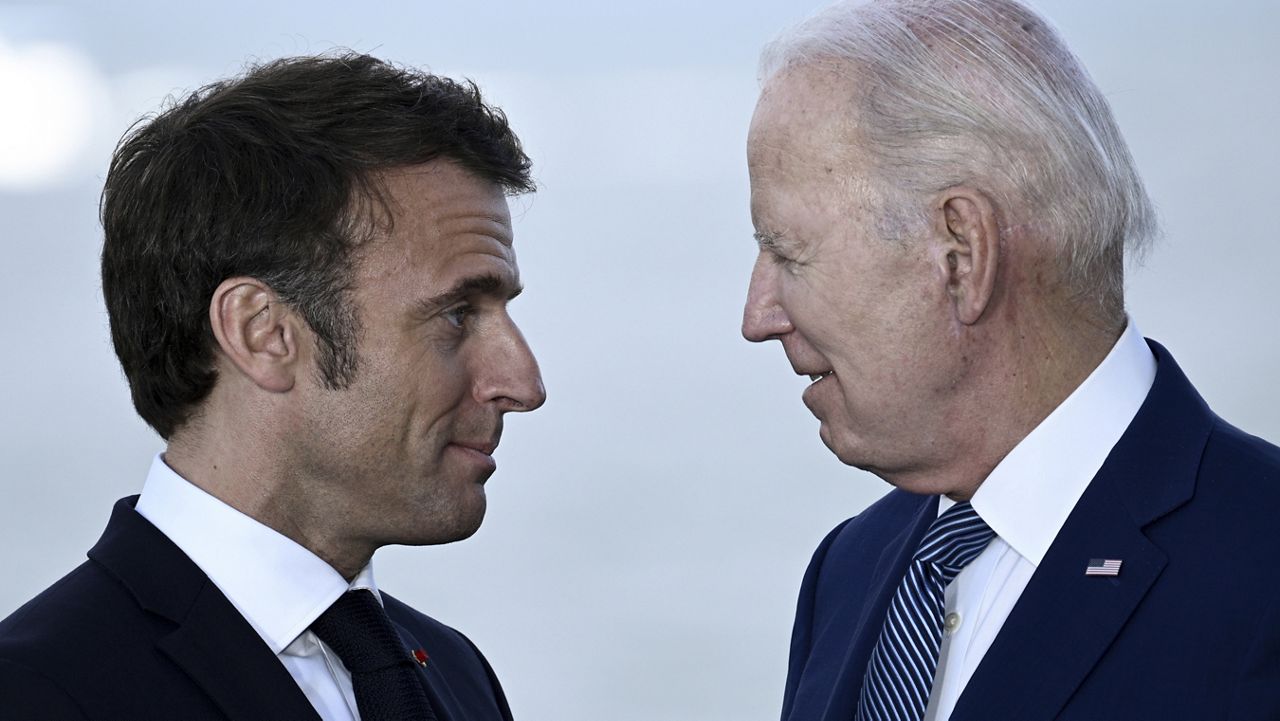Travel
Biden to travel to France to mark D-Day anniversary, meet with Macron

President Joe Biden will travel to France next week to mark the 80th anniversary of D-Day before meeting with French President Emmanuel Macron as part of an official state visit, the White House announced Thursday.
Biden will start the trip on June 6 in Normandy, where he will deliver remarks to mark the anniversary of tens of thousands of troops from the U.S., Canada, the United Kingdom and more arriving on the beaches in Nazi-occupied France during World War II. He and first lady Jill Biden will also participate in commemoration events, including meeting with American veterans and their families.
The next day, the president is set to give a speech on freedom and democracy at Pointe du Hoc before making his way to Paris for the official state visit on June 8.
“The State Visit will reflect the enduring and comprehensive relationship between the United States and France, our oldest ally, founded on shared democratic values, economic ties, and defense and security cooperation,” White House Press Secretary Karine Jean-Pierre said in a statement on Thursday. “President Biden and President Macron will have the opportunity to discuss a wide range of global challenges and bilateral issues.”
The visit takes place against the backdrop of two wars currently raging in Europe and the Middle East. And it comes as Biden and Macron have found themselves not completely aligned on recent developments in both: an Israeli strike in Rafah on Sunday that killed dozens of Palestinians as well as Ukrainian President Volodymyr Zelenskyy’s request to hit military targets inside Russia with weapons supplied by Western partners.
The White House has consistently said it does not “encourage” or “enable” attacks by Ukraine on Russian soil using U.S.-provided weapons.
The U.S. and Western leaders have been cautious about sparking a wider war and Russian President Vladimir Putin has threatened that direct involvement from the West could lead to nuclear conflict.
With Ukraine recently struggling on the battlefield, Zelenskyy has been urging Western partners to allow Kyiv to use the weapons they provide to strike inside Russia. A number of those partners have come out and said they support Ukraine’s ability to do so, including Macron this week – although he added the condition that France believes Ukraine should be able to “neutralize” only the specific sites where Russia launches missiles.
For its part, the White House on Wednesday said that there is “no change” in U.S. policy on the matter. However White House National Security Communications Adviser John Kirby and Secretary of State Antony Blinken both emphasized that U.S. support has “evolved” based on the situation on the battlefield.
“And another hallmark of our support for Ukraine over these now more than two years has been to adapt,” Blinken said during a press conference in Europe on Wednesday. “As the conditions have changed, as the battlefield has changed, as what Russia does has changed in terms of how it’s pursuing its aggression, escalation, we’ve adapted and adjusted too, and I’m confident we’ll continue to do that.”
Macron said this week that Zelenskyy is also set to be in France to commemorate D-Day.
Meanwhile, Macron, who called for a cease-fire in the war in Gaza as early as about a month after Hamas’ Oct. 7 attack on Israel that left about 1,200 dead and sparked the war, said he was “outraged” by recent Israeli strikes in Rafah.
“These operations must stop. There are no safe areas in Rafah for Palestinian civilians,” Macron wrote on X, formerly Twitter. “I call for full respect for international law and an immediate ceasefire.”
An Israeli strike on Sunday that killed dozens of civilians in a tent compound in Rafah – the southern Gaza city in which more than one million Palestinians have been taking shelter – drew swift rebuke from some on the world stage.
The White House this week said it had no policy changes as a result of the strike, despite Biden a few weeks ago warning that he would halt shipments of offensive weapons to Israel if it proceeded with a major ground operation in Rafah, something the U.S. opposes without a plan to protect civilians.
“As a result of this strike on Sunday, I have no policy changes to speak to,” Kirby told reporters on Tuesday. “It just happened. The Israelis are going to investigate it. We’re going to be taking great interest in what they find in that investigation and we’ll see where it goes from there.”
The administration has maintained, even after Sunday’s strike, that it has yet to see Israel launch what it would call a major ground operation.
Biden hosted Macron and his wife, Brigitte, for the first state visit with a formal state dinner of his presidency in 2022.







:max_bytes(150000):strip_icc()/roundup-writereditor-loved-deals-tout-f5de51f85de145b2b1eb99cdb7b6cb84.jpg)


